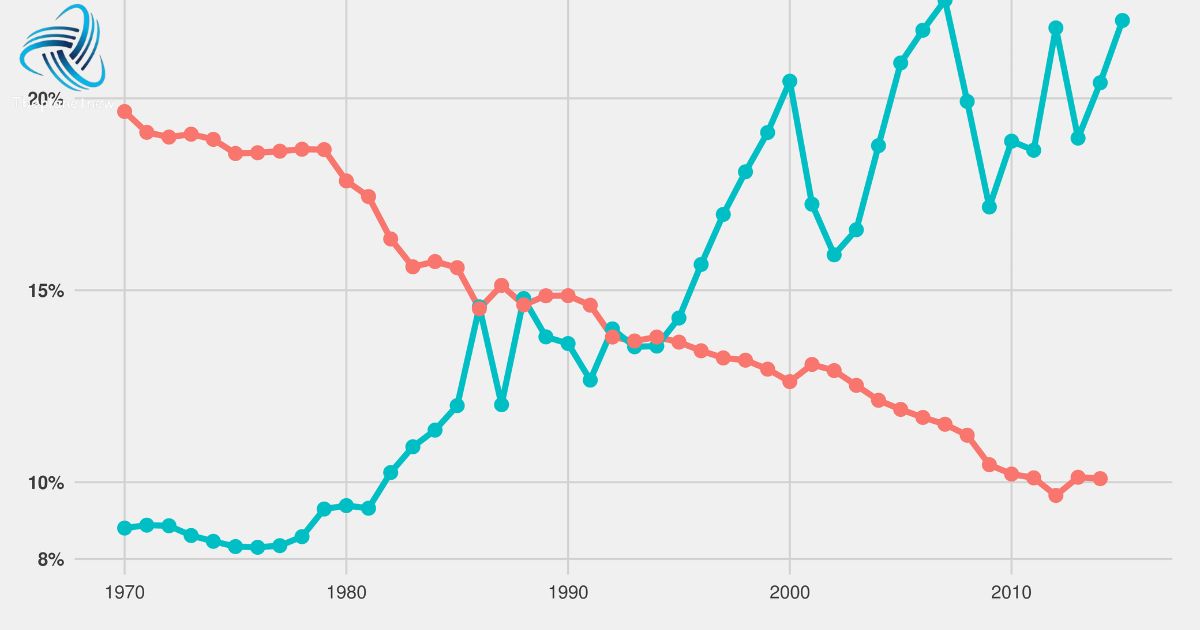Do you ever wonder why governments regulate businesses in a capitalist society? It’s because they have a crucial role in addressing market failures, protecting consumer rights, ensuring fair competition, promoting social welfare, balancing economic growth, addressing income inequality, and safeguarding public interest. These regulations are put in place to create a sense of belonging and to ensure that the economy functions in the best interest of everyone. So, let’s delve into the reasons behind government regulation and understand its impact on our society.
Key Takeaways
- Governments regulate business in capitalist societies to address market failures and externalities.
- Government regulations ensure consumer rights are protected.
- Regulations foster fair competition in the business environment.
- Governments play a crucial role in promoting social welfare in capitalist societies.
Market Failures and Externalities
In a capitalist society, you may experience market failures and externalities, which is why governments often regulate business. Market failures occur when the free market fails to allocate resources efficiently, leading to suboptimal outcomes. Externalities, on the other hand, refer to the spillover effects of economic activities on third parties, which can be positive or negative.
These market failures and externalities can have significant social and economic consequences, such as environmental pollution, income inequality, and monopolistic practices. Governments step in to regulate business in order to correct these market failures and protect the interests of the public. Through regulations, governments aim to ensure fair competition, consumer protection, and sustainable development. By addressing these issues, governments create a sense of belonging and trust among the citizens, as they feel protected and represented by their government.
Protecting Consumer Rights
You rely on regulations to ensure your rights as a consumer are protected. Without these regulations, businesses would have the freedom to take advantage of consumers, potentially leading to unsafe products, deceptive advertising, and unfair business practices. Government regulations play a crucial role in safeguarding consumer rights by providing guidelines and standards for businesses to follow. Here are three key ways in which regulations protect you as a consumer:
- Product Safety: Regulations require businesses to meet specific safety standards, ensuring that the products you purchase are free from defects and pose no harm to you or your family.
- Consumer Information: Regulations mandate businesses to provide accurate and transparent information about their products, such as ingredients, potential risks, and usage instructions, allowing you to make informed decisions.
- Fair Practices: Regulations prohibit unfair and deceptive practices, such as false advertising or price gouging, ensuring fair competition and protecting consumers from being exploited.
Ensuring Fair Competition
By fostering fair competition, regulations help level the playing field and ensure that businesses operate in an environment that benefits consumers like yourself. When businesses are subject to regulations that promote fair competition, it prevents monopolies and encourages innovation and efficiency. Fair competition allows for a wider variety of products and services, better quality, and lower prices. To illustrate the importance of fair competition, consider the following table:
| Benefits of Fair Competition | How it Benefits You |
|---|---|
| Increases choices | Allows you to choose from various options and find the best product or service for your needs |
| Enhances quality | Encourages businesses to improve their products or services to attract customers |
| Lowers prices | Competition drives businesses to offer competitive prices, saving you money |
| Promotes innovation and efficiency | Businesses strive to innovate and become more efficient to stay ahead of their competitors |
These benefits are possible because of regulations that ensure businesses compete fairly and do not engage in anti-competitive practices. So, in a capitalist society, regulations play a crucial role in maintaining fair competition, which ultimately benefits consumers like yourself.
Promoting Social Welfare
Promoting social welfare is a crucial role for governments in a capitalist society. By implementing policies aimed at improving the overall well-being of the population, governments can address societal challenges and ensure a higher quality of life for all citizens. This includes providing access to essential services such as healthcare, education, and social security, which contribute to a more equitable and inclusive society.
Government Intervention Benefits Society
One of the reasons governments often regulate business in a capitalist society is because it benefits society as a whole. When governments intervene in the business sector, they aim to create a level playing field and prevent unfair practices that could harm consumers or smaller businesses. This regulation helps to ensure that businesses operate ethically and responsibly, which fosters trust and confidence in the market.
Here are three ways in which government intervention benefits society:
- Protecting consumers: Regulations such as product safety standards and labeling requirements help safeguard consumers from harmful or deceptive practices.
- Promoting competition: By enforcing antitrust laws and preventing monopolies, governments encourage fair competition, which leads to increased innovation, lower prices, and better quality products.
- Safeguarding the environment: Governments regulate businesses to minimize negative environmental impacts, such as pollution or resource depletion, ensuring a sustainable future for all.
Through these measures, government regulation plays a crucial role in creating a well-functioning capitalist society that benefits everyone.
Protecting Vulnerable Populations
If you’re part of a vulnerable population, government intervention can provide essential support and protection. Vulnerable populations, such as low-income individuals, the elderly, and those with disabilities, often face significant challenges in accessing basic needs and resources. Government intervention can help bridge this gap by implementing social welfare programs, such as healthcare assistance, affordable housing initiatives, and food assistance programs. According to data from the U.S.
Census Bureau, government assistance programs have been successful in reducing poverty rates among vulnerable populations. For example, the Supplemental Nutrition Assistance Program (SNAP) has lifted millions of individuals out of poverty and improved their overall well-being. Additionally, government regulations ensure that businesses cannot exploit vulnerable populations by enacting laws that protect consumers from unfair practices. By providing essential support and protection, government intervention is crucial in ensuring the well-being and belonging of vulnerable populations in society.
Ensuring Fair Competition
To ensure fair competition, it’s important for all market participants to follow regulations and avoid unfair practices. This ensures a level playing field and promotes a healthy business environment. Here are three reasons why fair competition is crucial:
- Preventing Monopolies: Regulations prevent companies from gaining excessive market power, which can lead to monopolistic practices that stifle competition and limit consumer choices.
- Protecting Consumer Interests: Fair competition encourages businesses to offer high-quality products and services at competitive prices, benefiting consumers by providing them with more options and better value.
- Promoting Innovation: When businesses compete fairly, they are motivated to innovate and improve their offerings to gain an edge in the market. This leads to advancements in technology, product development, and overall economic growth.
Balancing Economic Growth
You need to consider the importance of balancing economic growth when discussing why governments often regulate business in a capitalist society. While capitalism promotes free market competition and innovation, it can also lead to negative externalities such as income inequality and environmental degradation. Governments step in to regulate businesses in order to mitigate these negative impacts and ensure sustainable economic growth. By implementing regulations, governments can protect consumers, workers, and the environment, while still fostering a business-friendly environment. Here is a table that highlights some of the key reasons why governments regulate businesses in a capitalist society:
| Reasons for Government Regulation | Examples |
|---|---|
| Protecting consumer rights | Enforcing product safety standards, regulating fair pricing practices |
| Ensuring fair competition | Prohibiting monopolies, preventing anti-competitive practices |
| Safeguarding public health and environment | Imposing environmental regulations, ensuring food safety |
Regulating businesses in a capitalist society is crucial for maintaining a balance between economic growth and the well-being of society as a whole. By addressing the negative externalities associated with unbridled capitalism, governments can create an inclusive and sustainable economy where everyone can feel a sense of belonging.
Addressing Income Inequality
Addressing income inequality is crucial in creating a more equitable society where everyone has equal opportunities to succeed. In order to achieve this, it is important to understand the reasons behind income inequality and how it can be remedied. Here are three key factors to consider:
- Education: Access to quality education plays a vital role in reducing income inequality. By providing equal educational opportunities for all, individuals can acquire the necessary skills and knowledge to compete in the job market on an equal footing.
- Progressive taxation: Implementing a progressive tax system ensures that those who earn more contribute a larger proportion of their income towards public services and welfare programs. This helps redistribute wealth and bridge the income gap.
- Social safety nets: Establishing robust social safety nets, such as unemployment benefits, healthcare, and affordable housing, can provide a safety net for those facing financial hardships, reducing income disparities and promoting social cohesion.
Safeguarding Public Interest
To safeguard public interest, governments play a crucial role in preventing market monopolies and ensuring fair competition. By regulating businesses in a capitalist society, authorities aim to maintain a level playing field for all market participants. This approach allows for increased consumer choice, lower prices, and innovation, promoting economic growth and overall societal welfare.
Preventing Market Monopolies
Market monopolies can harm competition and limit consumer choices. When a single company dominates a particular industry, it can exploit its market power to drive out competitors and dictate pricing terms. This not only reduces options for consumers but also stifles innovation and hampers economic growth. To prevent such negative consequences, governments often regulate businesses to ensure fair competition. Here are three ways in which they address market monopolies:
- Implementing antitrust laws that prohibit monopolistic practices, such as price fixing and predatory pricing.
- Conducting investigations and enforcing penalties on companies that engage in anti-competitive behavior.
- Promoting mergers and acquisitions regulations to prevent the formation of monopolies through excessive consolidation.
Ensuring Fair Competition
You play a crucial role in supporting fair competition by choosing to patronize businesses that prioritize innovation and offer a wide range of choices. When businesses compete, consumers benefit from lower prices, better quality products, and increased innovation. This is why governments often regulate business in a capitalist society. By implementing policies to ensure fair competition, governments aim to prevent monopolies and protect consumers.
According to data from the Organization for Economic Cooperation and Development (OECD), competition has a positive impact on economic growth, productivity, and consumer welfare. It encourages businesses to invest in research and development, leading to new and improved products. Additionally, fair competition fosters a sense of belonging as consumers have the power to shape the market by supporting businesses that align with their values and preferences.
Frequently Asked Questions
How Does Government Regulation in a Capitalist Society Address Environmental Issues and Promote Sustainability?
Government regulation in a capitalist society addresses environmental issues and promotes sustainability by implementing policies that enforce responsible business practices, setting emissions standards, promoting renewable energy sources, and incentivizing environmentally-friendly practices through tax breaks and grants.
What Role Does Government Regulation Play in Ensuring Workplace Safety and Protecting Workers’ Rights?
To ensure workplace safety and protect workers’ rights, government regulation plays a crucial role. By setting standards and enforcing them, governments create a sense of security and fairness, fostering a healthy work environment for all.
How Does Government Regulation in a Capitalist Society Address the Issue of Monopolies and Prevent the Concentration of Economic Power?
Government regulation in a capitalist society addresses the issue of monopolies and prevents the concentration of economic power. By implementing antitrust laws, governments ensure fair competition, protect consumer interests, and promote a level playing field for businesses, fostering a healthy and inclusive economy.
What Are Some Examples of Government Regulations in a Capitalist Society That Aim to Prevent Fraud and Ensure Financial Stability?
Governments regulate businesses in a capitalist society to prevent fraud and ensure financial stability. For example, they may require companies to disclose financial information and establish regulatory bodies to monitor and enforce compliance.
How Does Government Regulation in a Capitalist Society Promote Innovation and Technological Advancements?
Government regulation in a capitalist society promotes innovation and technological advancements by providing a framework that encourages competition, protects intellectual property rights, and fosters a stable business environment. This leads to increased investment, research, and development, driving progress and economic growth.
Conclusion
In conclusion, government regulation in a capitalist society serves multiple purposes, including addressing market failures, protecting consumer rights, promoting fair competition, and ensuring social welfare. One interesting statistic to emphasize the importance of regulation is that, according to a study by the World Bank, countries with stronger regulatory frameworks have higher levels of economic development and investment. This highlights the positive impact that well-designed regulations can have on overall economic growth and stability.









